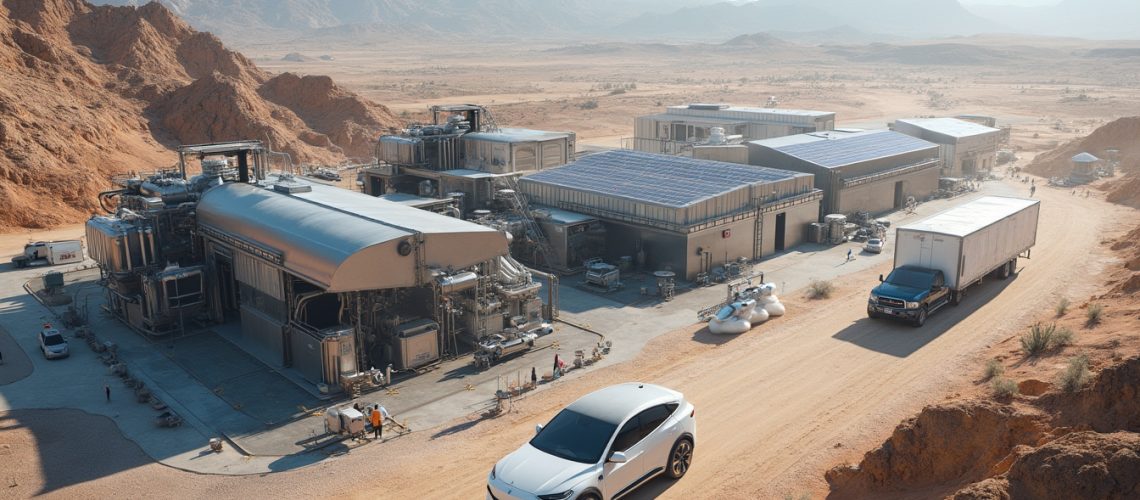Introduction
Ioneer has recently secured an unprecedented US$996 million loan from the US Department of Energy (DOE) under the Advanced Technology Vehicles Manufacturing (ATVM) program. This substantial funding, a 40% increase from its January 2023 conditional loan commitment, is designated for the Rhyolite Ridge Lithium-Boron Project in Nevada. This project positions Ioneer at the forefront of domestic critical mineral production, marking a significant step towards the United States' self-sufficiency in essential battery materials.
Transforming the US Battery Materials Landscape
The Rhyolite Ridge project is poised to be transformative for the United States' battery materials supply chain. Once operational, it is expected to quadruple the domestic lithium supply, providing enough material to power approximately 370,000 electric vehicles annually. This dramatic increase in lithium production will significantly reduce the nation's reliance on foreign sources, particularly China and Turkey, which currently dominate global lithium and boron markets.
Beyond mineral production, the project promises substantial economic benefits:
- Creation of 500 construction jobs during the build phase.
- Establishment of 350 permanent high-paying positions once operational.
- Stimulation of local economies through workforce engagement and supplier contracts.
Strategic Location and Global Impact
How Will the Rhyolite Ridge Project Impact Global Mineral Production?
Strategically located in Nevada, the Rhyolite Ridge project aims to fundamentally rebalance global lithium and boron production. By providing a domestic source of these critical minerals, the United States can reduce its international dependencies. This move is crucial for national security and economic stability, especially in the context of global supply chain disruptions.
The project's significance is further underscored by the growing demand for electric vehicles (EVs) and renewable energy technologies, which rely heavily on lithium-ion batteries.
A Methodical Approach to Development
Ioneer has outlined a comprehensive roadmap for the project's development:
- Updating Resource and Reserve Estimates: Ensuring accurate and efficient extraction plans.
- Finalising a Joint Venture with Sibanye-Stillwater: Strengthening financial and operational capabilities.
- Securing Additional Funding: Complementing the DOE loan to fully finance the project.
- Commencing Construction in 2025: Following environmental approvals and community consultations.
- Targeting First Production in 2028: Aligning with projected market demands.
These strategic steps demonstrate Ioneer's commitment to establishing a robust and sustainable domestic critical minerals infrastructure.
Element 25's Battery Materials Strategy







